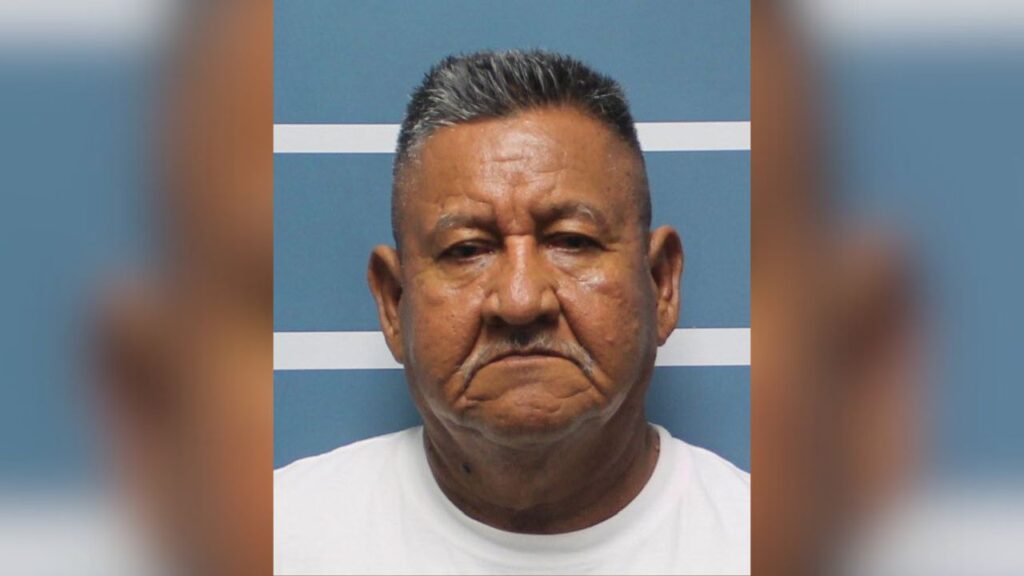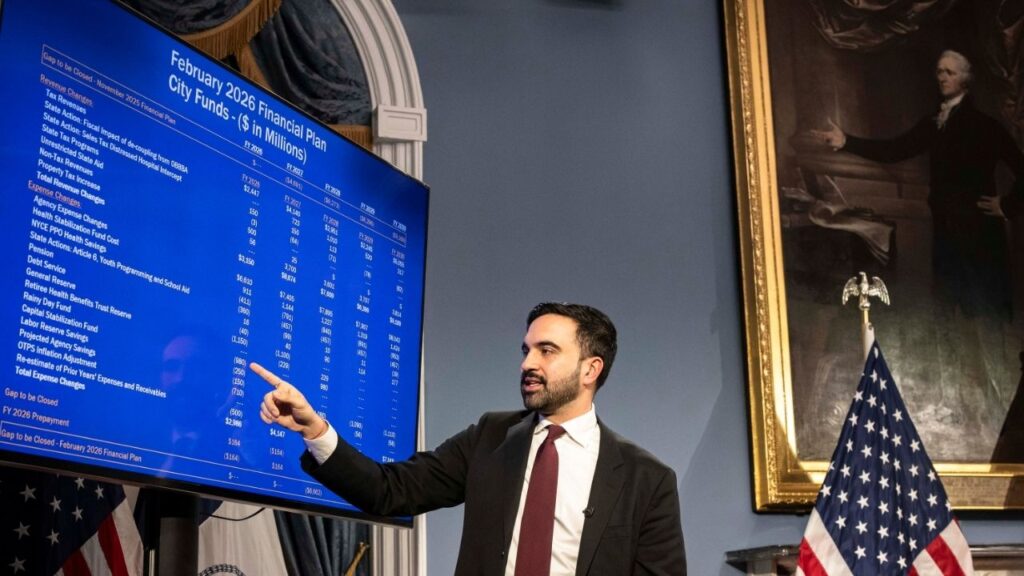Two new bills would allow state funding to support sober housing for homeless residents, a significant departure from California’s current ‘housing first’ law. (AP File)

- Lawmakers in California are proposing bills to fund sober housing for the homeless.
- The bills aim to provide options for those seeking sobriety while homeless.
- California has a shortage of sober living beds compared to those in need.
Share
|
Getting your Trinity Audio player ready...
|
Desperate for a way to help the tens of thousands of people living in tents, cars and RVs on California’s streets, lawmakers are attempting to upend a key tenet of the state’s homelessness policy.

Marisa Kendall
CalMatters
Two new bills would allow state funding to support sober housing — a significant departure from current law, which requires providers to accept people regardless of their drug and alcohol use.
“If people want to get off of drugs and away from drugs, we should give them that option,” said Assemblymember Matt Haney, a Democrat from San Francisco who wrote Assembly Bill 2479. “They shouldn’t be forced to live next to people who are using drugs.”
There are at least 12,000 sober living beds in the state, but more than twice that many Californians who would qualify for those services, according to data from the California Research Bureau quoted in the Assembly Health Committee’s analysis of the second bill, AB 2893.
As state law prohibits spending housing funding on sobriety-focused programs, many are funded by private donations.
The lawmakers behind the two bills say they aren’t trying to alter the key idea that everyone deserves immediate housing, even people struggling with addictions. Instead, they’re attempting to give more choices to people who want to be sober. But some experts worry that, because California has a shortage of homeless housing, people who relapse in sober housing or who don’t want to stay sober would have nowhere to go but back to the street.
The bills come as California’s homelessness population is skyrocketing, having increased from about 118,000 in 2016 to more than 181,000 last year. Some critics blame and want to overturn the state’s inclusive housing policy. At the same time, as public fears about crime soar, voters in some liberal cities are putting limits on who can receive public assistance.
San Francisco voters this year passed an initiative mandating drug screenings for welfare recipients. In San Diego County, Vista Mayor John Franklin recently introduced a measure pledging not to support “any program that enables continued drug use” and criticizing housing first for precluding sober housing.
“I think we are seeing a cultural shift,” said Christopher Calton, a research fellow who studies housing and homelessness for libertarian think-tank the Independent Institute. “People are starting to say these permissive policies aren’t working.”
California’s ‘Housing First’ Homelessness Policy
At issue is the state’s adherence to “housing first,” a framework where homeless residents are offered housing immediately and with minimal caveats or requirements, regardless of sobriety. The housing should be “low-barrier,” meaning residents are not required to participate in recovery or other programs.
After someone is housed, providers are then supposed to offer voluntary substance use and mental health treatment, job training, or other services. The idea is that if people don’t have to focus all their energy on simply surviving on the streets, they’re better equipped to work on their other issues.
California Adopted ‘Housing First’ in 2016
Housing first became law of the land in California in 2016 when the state required all state-funded programs to adopt the model.
The federal government also uses that framework. But in 2015, the U.S. Department of Housing and Urban Development said requiring sobriety is not necessarily anti-housing first. California did not follow suit.
Some Republicans and conservative-leaning groups now are pushing to overturn California’s housing first framework, saying it hasn’t successfully reduced homelessness. Assemblymember Josh Hoover, from Folsom, is trying to completely repeal housing first with AB 2417. That bill has yet to be heard by a committee, and likely won’t advance this year.
But with more than 180,000 Californians lacking a home, even Democrats want to see changes. The bills by Haney and Assemblymember Chris Ward of San Diego would allow up to 25% of state funds in each county to go toward sober housing.
Neither Democrat wants to upend housing first. Instead, they want sober housing facilities to operate under a housing first framework. Haney’s bill would require counties to make sure sober facilities kept people housed at rates similar to facilities without sobriety requirements.
Both bills specify that tenants should not be kicked out of their sober housing just because they relapse, and instead they should get support to help them recover. If a resident is no longer interested in being sober, the program should help them move into another housing program.
Sober Living Option for Those Who Want It
Having a sober living option for people who want it would be a good thing — but it would have to be their choice, said Sharon Rapport, director of California state policy for The Corporation for Supportive Housing. But homeless housing is so scarce in California, that it’s unlikely participants would be given a true choice, she said. And, these bills would divert already limited state money away from low-barrier housing.
“My worry is that we have one pie of funding for housing,” she said. “So it’s not like we’re saying, ‘Let’s add extra money and try this other approach.’ We’d be saying, ‘Let’s spend less money on harm-reduction housing.’”
Her organization has not taken an official position on the bills.
To make sure people don’t end up back on the street after a relapse, counties would have to keep spaces in low-barrier housing free, in case someone needs to move out of sober housing, Haney said. But that’s not explicitly mandated in the bill.
One key motivation for Haney to draft his sober housing bill is the surge of deaths caused by the opioid fentanyl.
“Our housing first policies in California do not reflect the realities of fentanyl and the need to provide pathways to get off of and away from such a deadly drug,” he said.
Overdose deaths are rampant inside San Francisco’s homeless housing, a 2022 San Francisco Chronicle investigation found. But the state doesn’t track those deaths in public housing, meaning if Haney’s sober housing bill passes, it will be all but impossible to tell whether it saves lives.
The state should track those deaths, Haney said, adding, “maybe I’ll do that bill next year.”
Related Story: Politicians Keep Shifting Blame as California’s Homelessness Crisis Worsens
Does Housing First Work?
The argument against housing first is simple: Since California adopted the policy, the state’s homeless population has grown by more than half.
But experts say that’s because high housing costs are pushing people onto the streets faster than the state’s overburdened supportive housing system can pull them back inside.
Under immense pressure to do something about the crisis, politicians are pointing to housing first as a scapegoat, said Ann Oliva, CEO of the National Alliance to End Homelessness. But that’s like blaming the emergency room for the number of COVID patients coming in during the pandemic, she said.
Multiple studies have shown housing first to be successful. The Department of Veterans Affairs in 2010 found adopting housing first reduced the time it took to place people in housing from 223 days to 35 days. A two-year study in five Canadian cities found housing first participants spent 73% of their time in stable housing, compared with 32% for participants in non-housing first programs.
People Assisting the Homeless (PATH), which operates housing first programs in Southern California and the Bay Area, reported 94% of people who moved in were still housed a year later. Destination: Home in Santa Clara County, which spearheads the county’s housing first efforts, reported similar results.
“That is as much evidence as I think would be necessary to show that this model works really well,” said CEO Jennifer Loving, “and the problem is we haven’t been able to do enough of it.”
About the Author
Marisa Kendall covers California’s homelessness crisis for CalMatters. With more than six years of experience navigating this complex topic, Marisa has won multiple awards for her sensitive, comprehensive coverage. She strives to provide nuanced, in-depth reporting that both explains convoluted California policy and highlights the stories of people on the street affected by Sacramento’s decisions.
Before joining CalMatters, Marisa covered housing and homelessness for the Bay Area News Group (including The Mercury News and East Bay Times), where she was part of a team that won a Pulitzer Prize for coverage of the deadly Ghost Ship warehouse fire in Oakland.
About CalMatters
CalMatters is a nonprofit, nonpartisan newsroom committed to explaining California policy and politics.
RELATED TOPICS:
Categories

Blackstone Avenue Shelters Crush Fresno Dreams and Businesses


















